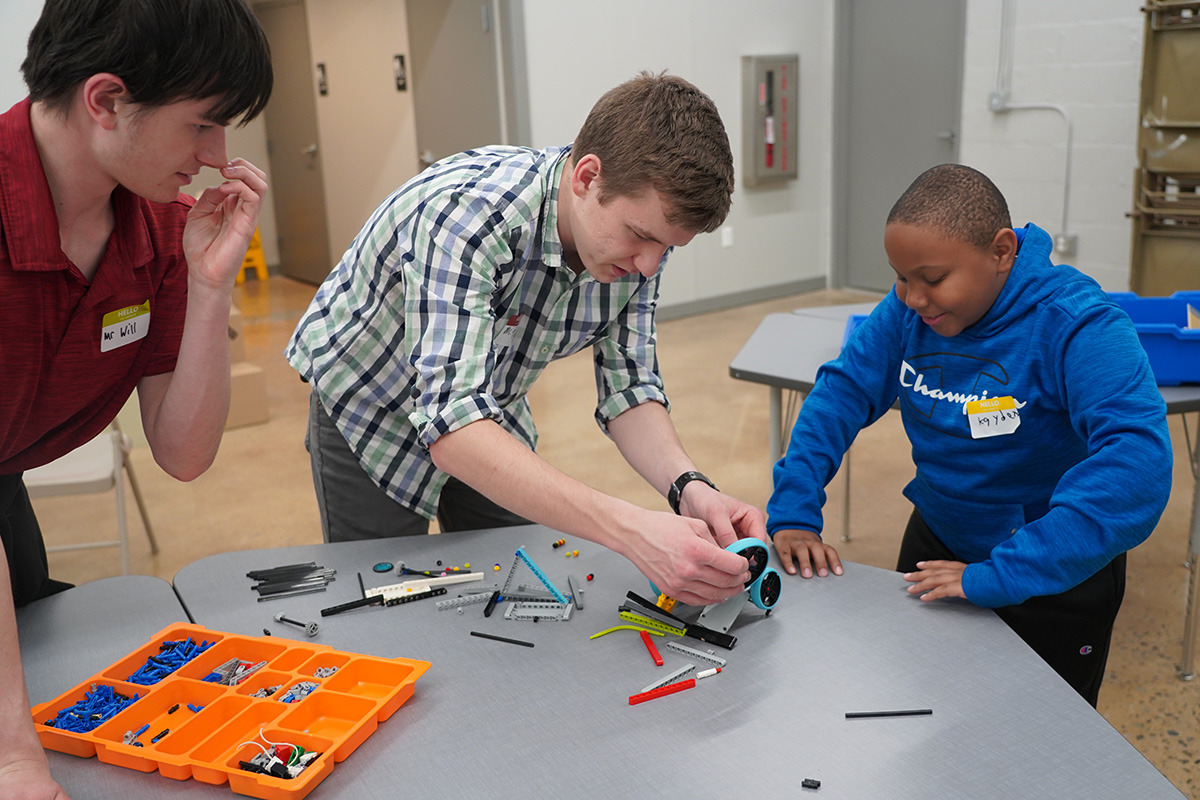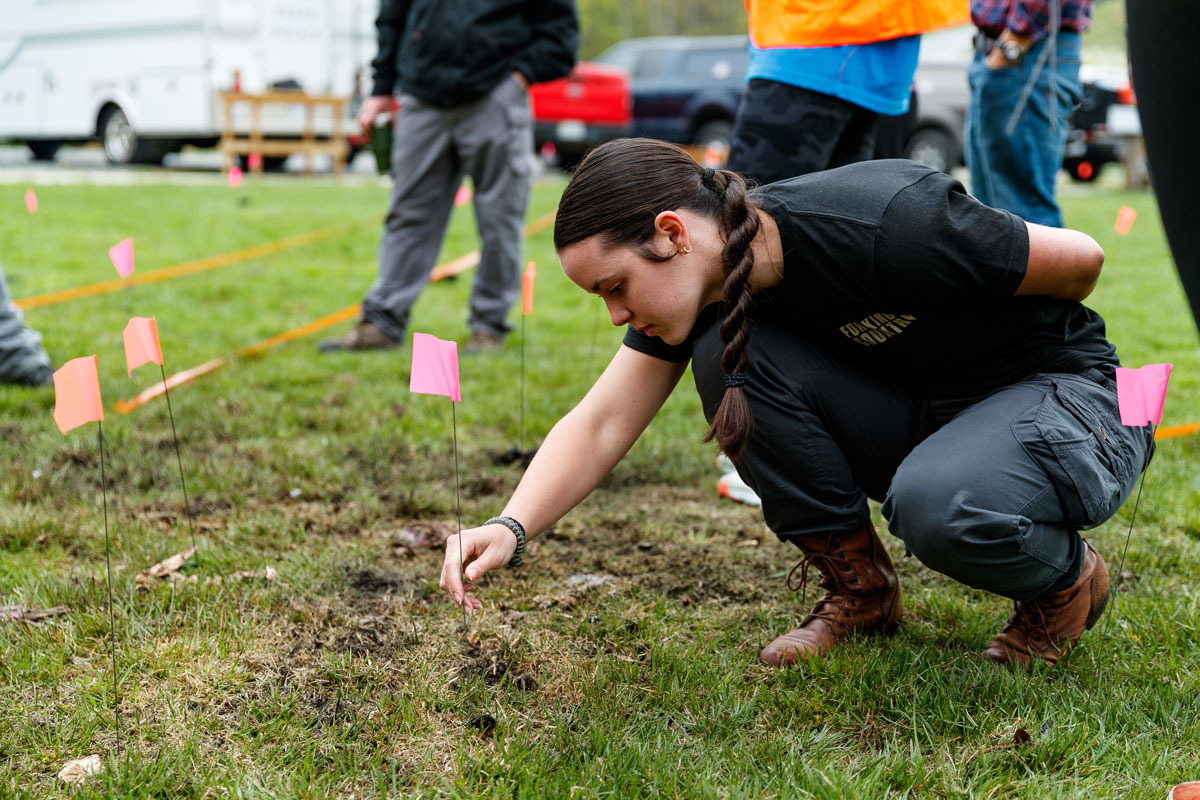Search News Archives
Filter News Articles
Additional Navigation
Flying high: LU School of Aviation on upswing
April 29, 2008 : By Ron Brown

Just hours before he died last year, the Rev. Jerry Falwell had one last affirmation for Ernie Rogers, who heads Liberty University’s aviation school.
“Ernie, it is my vision that you will one day run the largest missionary aviation flight school in the country,” Falwell wrote in an e-mail.
As was often the case, Falwell’s words seemed prophetic.
Just four years removed from possible extinction, the aviation program has grown from just four students to 186 students this year.
The aviation program is now embarked on a multi-million dollar fundraising campaign designed to help build a new 56,000-square foot training facility, which will be located at the nearby Lynchburg Regional Airport.
“We have a unique niche,” said Rogers, who spent 27 years in the U.S. Navy before coming to LU. “We’re a Christian school with an aviation program. We’re a rare breed. There is only a couple like us.”
The aviation school’s growth spurt comes at a time when demand for quality pilots is surging.
“Aviation is a challenging career and the industry needs pilots now,” Rogers said. “There is a demand and that means jobs.”
That’s not to say that the aviation school plans only to train airplane pilots.
In August, the school will start a helicopter pilot program. In January 2009, the school will start an aircraft mechanics course.
In the future, Rogers said the aviation program would like to join forces with LU’s new school of engineering to train aeronautical engineers.
“There will be, I’m sure, some research and development going on here at Lynchburg,” he said.
While Rogers said enrollment in flight training will likely be capped at between 250 and 300 students because of limitations on airport traffic, the school could one day be educating around 500 students as its non-flight curriculum expands.
Rogers said courses could be added for students interested in airport management or air traffic control.
“We are very much on the front end of our growth,” Rogers said. “We’re going to do more than pilot training. We’re going to train students to do other things in the aviation industry.”
About 65 percent of the school’s pilots graduate to jobs in the commercial sector. Most start out working for commuter airlines in hopes of gaining experience to help them land jobs with major airlines.
About 30 percent of the pilots plan to use their flight skills on the mission field, where the school’s aircraft mechanics course is required.
“When you’re called to the mission field, you’ve got to fix them and fly them,” Rogers said.
About 5 percent of the school’s graduates go on to become military pilots.
Rogers requires all of the school’s academic instructors to be qualified and active flight instructors.
“Every time you strap on in an airplane you learn something and every time you take a young pilot with you they’re learning,” Rogers said. “You want to make sure you’re on your game, so what they pick up is good.”
Right now, the school enrolls about 75 new students each year, just about 20 times the total number of students the school had enrolled just four years ago.
“Our goal is to train young champions for Christ in all aspects of the aviation industry,” Rogers said. “This is really exciting. It really pumps me up. I enjoy coming to work every day. Aviation is just an awesome profession.”
In addition to their tuition, students pay extra for flight training.
“It’s expensive, but if you want to be a pilot, you have to get your license,” Rogers said.
Rogers said the aviation school would like to build an endowment for scholarships to offset some of the costs incurred by LU aviation students.
“We want to be self sufficient,” he said. “We don’t want to get everything out of the general fund. We want to carry our load.”
The aviation program employs 22 flight instructors, some of them the school’s most advanced students.
“We allow students who can go through the program fast to become flight instructors in their last year and teach for us,” Rogers said. “They can build up their flight hours and get into a better job when they graduate.”
But before the program grows to its potential, it must have the facilities it needs. That’s where the proposed new training facility comes in.
“That would put our entire flight training program and school for mechanics under one roof,” Rogers said.
And that would be good not only for the aviation program, but for Lynchburg in general, Rogers said.
“When we get that hangar done, I see Lynchburg becoming a hub for general aviation in Virginia,” he said. “It will be located centrally and we’ll have nice facilities to host special events.”
Dave Young, the aviation school’s director of development, echoes Rogers’ belief that the school is having a positive impact on the aviation industry in and around Lynchburg.
“The addition of a state-of-the-art training facility will propel our school to be one of the top tier programs in the country and lead to increased opportunities for the University and the community,” Young said. “Opportunities abound in new partnerships, research and development, and as a provider of high quality aviators, and with God’s blessing, we intend to fill these needs.”


